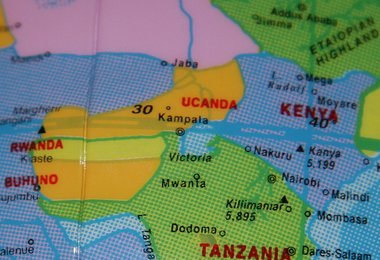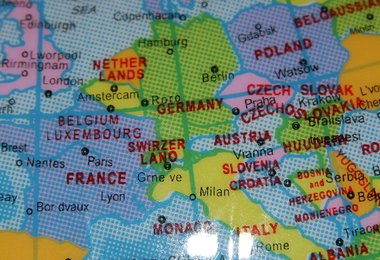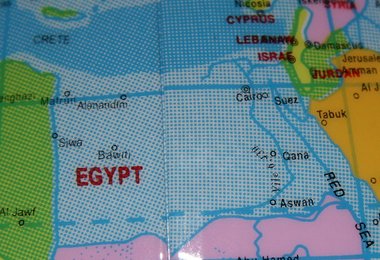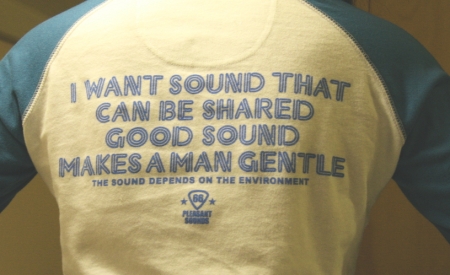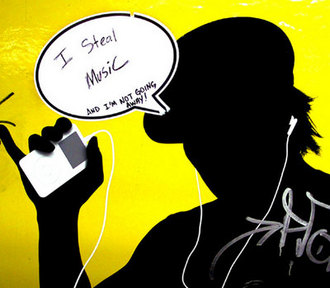The previous year saw far too much fighting over who gets to define and control the term free culture. The biggest problem, in my opinion, is that these fights conflate a very important discussion about the goals of a set of nascent social movements — or the lack thereof — with much less important issues of semantics, definitions, and control over terms. The term is being used in a way that describes a whole lot of projects I support and participate in fully — and a few I don’t. And I think that’s OK.
When Erik Möller and I launched the Free Cultural Works Definition (at the time, the Free Content and Expression Definition), we struggled to find a good term for the works that we wanted to liberate. We thought about using the terms content, expression, knowledge, information, art, data and communication but each word seemed to exclude an important body of works or producers. Few musicians we knew thought of their productions as "content" while few encyclopedia writers did not.
The term we liked most was culture: it defines a very broad set of practice and has very positive connotations. Of course, others had already been using the term free culture so we spent some reading up on the term and talking to the people most closely associated with it. Originally, the term seems to have its roots in the book Free Culture by Lawrence Lessig. I reread the book to get an idea for exactly what Lessig meant when he used the term but, upon reaching the end, I found myself without a good answer. The book’s index included a promising entry for "Free culture, defined" which pointed to a short section in the preface:
A free culture is not a culture without property; it is not a culture in which artists don’t get paid. A culture without property, or in which creators can’t get paid is anarchy, not freedom. Anarchy is not what I advance here.
Instead, the free culture that I defend in this book is a balance between anarchy and control. (emphasis mine)
Framed by a negative definition of what free culture is not, Lessig’s definition describes the broad space between two unattainable extremes. This resulting ambiguity is fully intended: Lessig has not only spoken out against my particular suggestion but against any definition and the process of offering ex cathedra definitions or goals altogether .
In personal conversations about our definition, Lessig was initially very supportive. In fact, it was Lessig who introduced Erik and I to each other and suggested that we work together. What Lessig did disagree with us on however, was calling the definition the Free Culture Definition. I think that Lessig felt some sense of ownership of the term and felt that he and others had defined it and been using it in a way that was broader and incompatible with the definition we were proposing and with any definition of the type of we were suggesting.
Early on, Lessig blessed a group of students to create a Free Culture student movement. Most active now in Harvard Free Culture and Free Culture NYU and but in a handful of other places as well, these groups have been involved in everything from the promotion of transgressive approaches to IP, to speech bubbles, to anti-DRM work, to protecting the right of cereal restaurants to operate. When Erik and I suggested to this group that they might benefit from adopting the Free Cultural Works Definition as a set of explicit ideals or goals for their movement, the larger part of the coalition soundly rejected the idea. Like Lessig, they wanted free culture to refer to wide variety of projects and did not feel good about describing any work by sympathetic parties as "non-ideal."
Erik and I were faced with two choices: we could call our definition the Free Culture Definition and in effect engage in a power struggle with Lessig and with some portion of the free culture student movement or we could pick another term. While we don’t like the alternatives as much as free culture, we didn’t have a lot of trouble deciding that going with a term like free cultural work or free content and expression was the better choice.
This is why I am a little worried about the recently announced UK-based Free Culture Foundation. I have nothing but respect for the founders (Matt Lee, Tom Chance, and Rob Myers) and trust them to create the type of free culture organization that I would like to see. I am very much looking forward to working closely with them on this project in the future. They seem likely to choose a set of goals and adopt a set of strategies in line with the ones I’ve argued for. But in that my goals and strategies have run into opposition among many of the most visible people using the term free culture in the past, that’s also why I’m a little worried.
SJ Klein and I were recently saying that its time to start naming organizations and projects in this area using only words in dead languages. That way, we can side-step the (unimportant) semantic arguments over who gets to control existing terms and focus on the real goal of building stronger social movements, setting goals that sound as unthreatening to each other as they actually are, and building better tools. Without semantic arguments in our way, we’ll be able stronger to build coalitions and work together in all the ways we should be.

